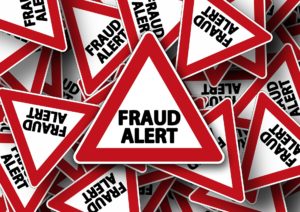Another SCAM the IRS Wants You to be Aware of
 Last week, the IRS put out a press release warning tax payers of yet another SCAM.
Last week, the IRS put out a press release warning tax payers of yet another SCAM.
Previously, we posted about the Form W-2 scam that urged payroll personnel to take extra precautions when it comes to protecting the information of their employees. This time, the target of these scammers is the money that is deposited into the taxpayers’ account! This scam involves erroneous tax refunds being deposited into bank accounts.
These criminals steal client data from tax professionals and file fraudulent tax returns. From here, they use the taxpayers’ real bank accounts for the deposit. Once the funds are deposited, they are using various tactics to reclaim the refund from the taxpayers.
What Does This Scam Look Like?
This scam is displayed in different ways. For some, a “debt collection agency official” (the scammer), acting on behalf of the IRS, has contacted the taxpayers to say a refund was deposited in error, and they asked the taxpayers to forward the money to their collection agency. In another case, a person or a recording acting on behalf of the IRS threatens the taxpayer with criminal fraud charges, an arrest warrant and a “blacklisting” of their Social Security Number unless the funds are returned.
What to do if Erroneous Funds are Deposited?
Taxpayers who receive the refunds should follow the steps outlined below. Please note that by law, interest may accrue on erroneous refunds.
If the erroneous refund was a direct deposit:
- Contact the Automated Clearing House (ACH) department of the bank/financial institution where the direct deposit was received and have them return the refund to the IRS.
- Call the IRS toll-free at 800-829-1040 (individual) or 800-829-4933 (business) to explain why the direct deposit is being returned.
If the erroneous refund was a paper check and hasn’t been cashed:
- Write “Void” in the endorsement section on the back of the check.
- Submit the check immediately to the appropriate IRS location listed below. The location is based on the city (possibly abbreviated) on the bottom text line in front of the words TAX REFUND on your refund check.
- Don’t staple, bend, or paper clip the check.
- Include a note stating, “Return of erroneous refund check because (and give a brief explanation of the reason for returning the refund check).”
The erroneous refund was a paper check and you have cashed it:
- Submit a personal check, money order, etc., immediately to the appropriate IRS location listed below.
- If you no longer have access to a copy of the check, call the IRS toll-free at 800-829-1040 (individual) or 800-829-4933 (business) (see telephone and local assistance for hours of operation) and explain to the IRS assistor that you need information to repay a cashed refund check.
- Write on the check/money order: Payment of Erroneous Refund, the tax period for which the refund was issued, and your taxpayer identification number (social security number, employer identification number, or individual taxpayer identification number).
- Include a brief explanation of the reason for returning the refund.
- Repaying an erroneous refund in this manner may result in interest due the IRS.
If you have additional questions on what do do if you are impacted by this scam, please don’t hesitate to reach out to one of our tax experts!
[button_1 text=”Contact%20Christianson%20Today!” text_size=”15″ text_color=”#ffffff” text_font=”Lato;google” text_letter_spacing=”1″ subtext_panel=”N” text_shadow_panel=”N” styling_width=”30″ styling_height=”20″ styling_border_color=”#ffffff” styling_border_size=”5″ styling_border_radius=”23″ styling_border_opacity=”100″ styling_gradient_start_color=”#1b335d” styling_gradient_end_color=”#1b335d” drop_shadow_panel=”N” inset_shadow_panel=”N” align=”center” href=”https://www.christiansoncpa.com/contact-us/”/]






